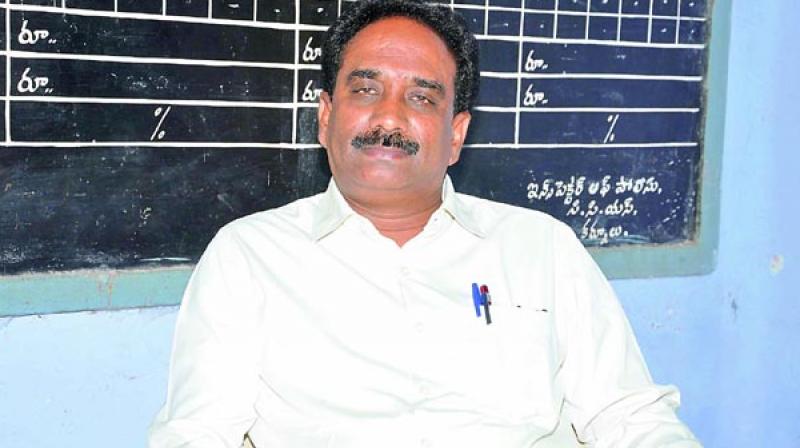Hyderabad: Bank to sell assets of Nagireddy Keshava Reddy
No stay from Hyderabad High Court on e-auction process.

Hyderabad: The Hyderabad High Court on Wednesday refused to stay the auction of the property belonging to Nagireddy Keshava Reddy, chairman of Keshava Reddy Educational Institutions located in Kondapur by State Bank of India.
A division bench comprising Acting Chief Justice Ramesh Ranganathan and Justice Shameem Akhter was dealing with a petition by Daddanala Venkatranga Reddy claiming that Keshava Reddy had entered into an agreement with him for sale of 1.14 acres of land before his arrest.
The petitioner alleged that by suppressing the fact of sale agreement, Keshava Reddy pledged the property with SBI and obtained a loan. He told the court that when he approached the civil court for protection of his right, the civil court granted a decree in his favour.
The petitioner submitted that without considering the decree, the bank issued a notification to sell the property through e-auction under the Securitisation Act.
However, suspecting foul play behind the plea, the bench refused to stay the auction and said that it intended to dismiss the plea. At this juncture, counsel urged the bench to grant permission to withdraw the petition. The bench granted permission.
Give reasons for stay of arrest, HC suggests to courts
The Hyderabad High Court on Wednesday made it clear that it would be appropriate for courts to cite reasons whenever they grant a stay on arrest of accused in criminal cases in writ petitions under Article 226 of the Constitution.
A division bench comprising Acting Chief Justice Ramesh Ranganathan and Justice Shameem Akhter, while dealing with a writ appeal challenging an order of a single judge staying arrest of the accused, observed that granting stay on the arrest of accused in criminal cases would amount to an interference in the investigations.
The bench said that though the courts have the power to stay arrest under the Article 226 of the Constitution, this power can be invoked in exceptional and extraordinary circumstances.
Setting aside the order of the single judge, the bench said that it was the discretion of the investigation officer to decide whether arrest of the accused was necessary for the investigation of the case or not.
The bench said that the police shall strictly adhere to Section 41A of CrPC while investigating the case.

